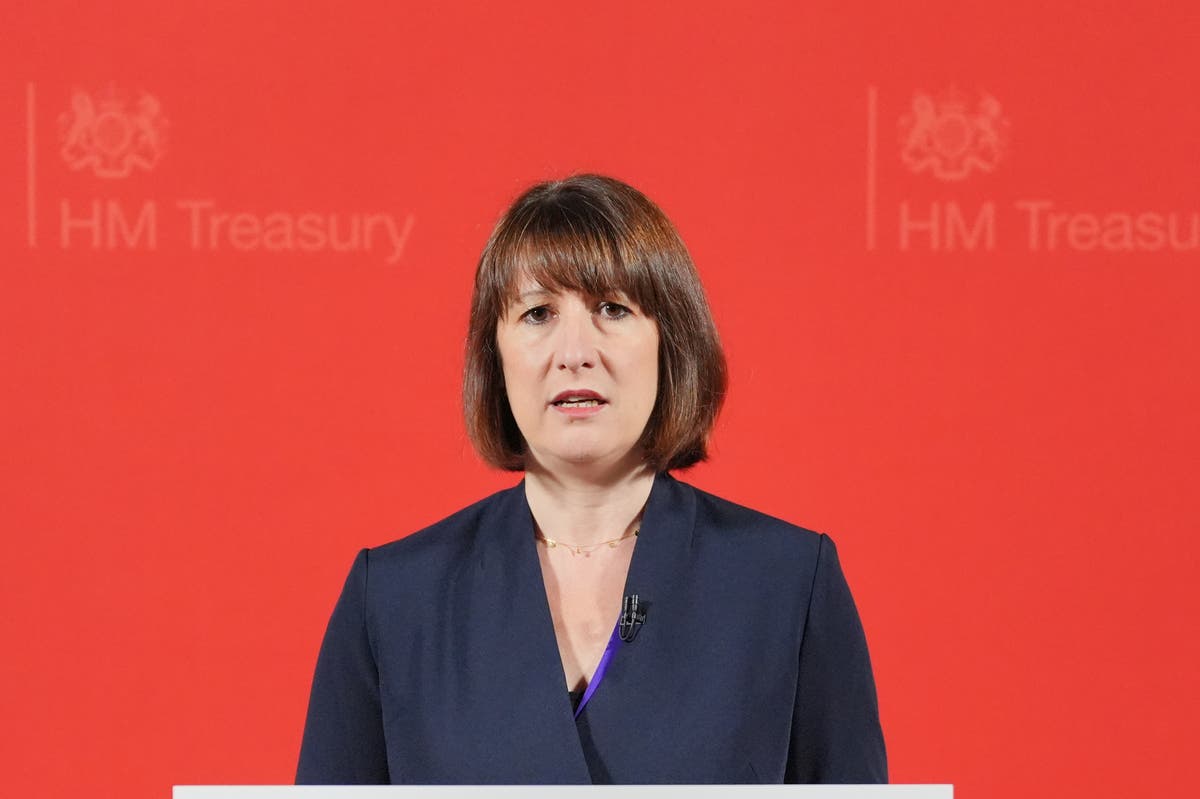A ritual dance takes place after every economic statistic is issued: regardless of the figures, Labour ministers complain about their economic inheritance, while the Conservatives insist they bequeathed an economy that had turned a corner.
Today’s performance came after worse-than-expected official figures showed the government borrowed £3.1bn last month, £1.8bn more than in July last year and the highest July figure since 2021. The government has so far spent £4.7bn more in the current financial year than the Office for Budget Responsibility (OBR) watchdog forecast in March.
Treasury ministers duly claimed further proof of Labour’s “dire inheritance”. But the Tories could point to last week’s stronger-than-predicted 0.6 per cent growth in the second quarter of this year.
Reeves is unrepentant: she is sticking to her script that Labour’s inheritance is the worst since the Second World War. She insists slightly better post-election figures will not fill the £22bn black hole in the public finances she identified last month.
This has infuriated her predecessor Jeremy Hunt, who insists he left the economy in good shape. I’m told that before the election, Hunt said privately Reeves would make a good chancellor. He doesn’t think so now, stung by what he regards as an attempt to blame the Tories for tax rises Labour planned all along. Mutual respect has turned to outright hostility – the mirror image of Rishi Sunak’s and Keir Starmer’s shift from election enemies to mutual compliments now.
In a way, Reeves and Hunt are both right. The economy is growing faster than expected. If the first two quarters of this year were annualised, it would mean a healthy 2.5 per cent growth – the ambitious target Reeves and Keir Starmer have set themselves. (Health warning: the current level might not last for the whole year.)
But Reeves is right about the dire state of the public finances and today’s borrowing figures bolstered her case. The Institute for Fiscal Studies (IFS) said “the early signs are that better-than-expected growth figures won’t be enough to save Rachel Reeves from tough choices in her first Budget on 30 October”.
The chancellor believes she will still need to raise taxes, but has a dilemma on how. Some Labour MPs hope she will increase income tax for those on the 45p-in-the-pound top rate. But that would breach the Labour manifesto, which promised not to increase income tax, national insurance or VAT. Reeves and Starmer would never hear the end of it; Labour’s hopes of restoring public trust in politics would surely be shattered.
Reeves is following the playbook of Gordon Brown – a framed photo of whom she had in her room at university. In 1997, the then chancellor stuck to Labour’s manifesto promise to keep within Tory spending plans for two years. As the former Labour cabinet minister, Jack Straw recalled on BBC Radio 4 this week, John Major, the outgoing prime minister, told him Labour was “silly” because if the Tories had won the election “we were going to abandon them”.
So Reeves will probably opt for several limited increases, such as capital gains tax and/or inheritance tax, rather than breach the manifesto. Like Brown, she will stick largely to unrealistic spending totals for the next few years.
Although the Labour manifesto described her fiscal rules as “non-negotiable”, insiders tell me she has been tempted since before the election to redefine how debt is measured to exclude the Bank of England. This could give her an extra £16bn of headroom. Independent analysts like the IFS would accuse her of moving the fiscal goalposts – but several chancellors have tweaked their rules when in danger of not meeting them.
Reeves’s tight review of departmental spending will mean no immediate response to growing clamour from Labour backbenchers to end the hated two-child limit on universal credit. That will have to await the outcome of a child poverty review that will not conclude until next spring.
In largely sticking to Tory plans described by the OBR as beyond “a work of fiction”, Reeves risks repeating the Tories’ mistakes by cutting capital spending such as infrastructure projects to protect day-to-day spending on public services. This could kill the golden goose by undermining the government’s number one priority to boost growth. Ominously, she has already shelved some road and rail schemes.
Reeves should rewrite her rules to allow higher borrowing for investment. As Torsten Bell, former head of the Resolution Foundation and now an MP and ministerial aide, wrote in his book Great Britain?, fiscal rules designed to discourage too much borrowing “have the opposite effect when it comes to investment” because they treat building a new council house the same as day-to-day spending such as teachers’ wages, and “better transport infrastructure identically to burning money in the street”.
Reeves should also listen to the politician who earlier this year branded the stop-go cycle of capital investment “the new British disease”. Who? Herself.

